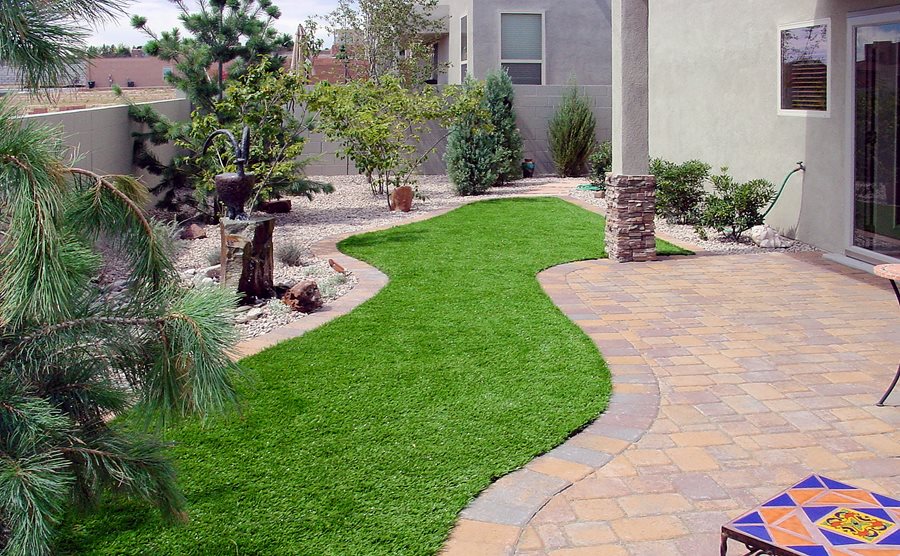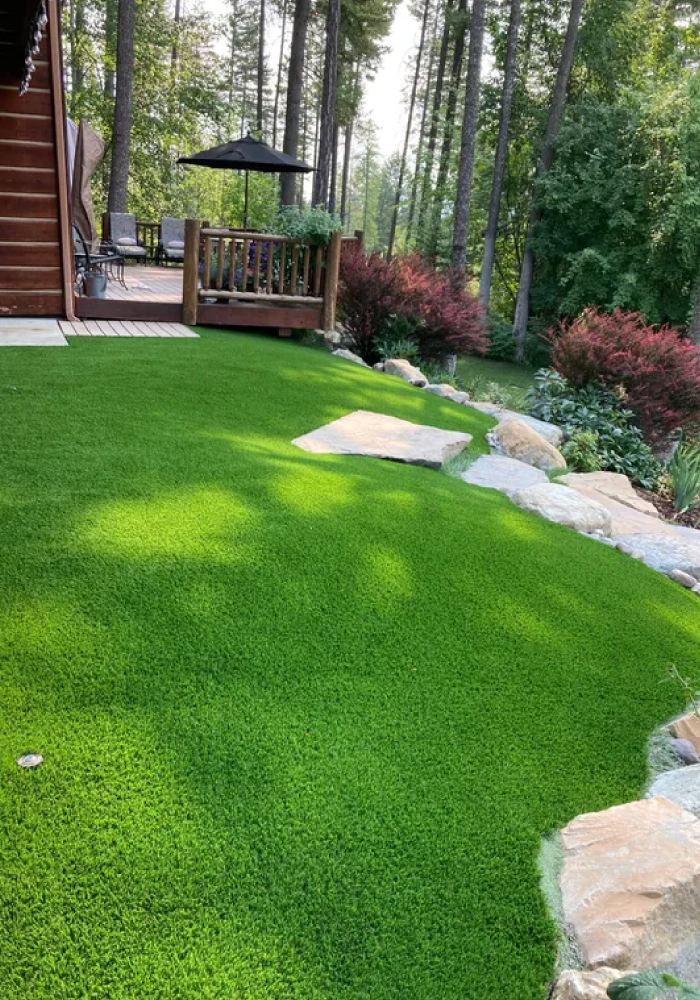Custom Turf Installation Phoenix AZ for Homes, Businesses, and Recreational Spaces
Custom Turf Installation Phoenix AZ for Homes, Businesses, and Recreational Spaces
Blog Article
Delve Into the Environmental Conveniences of Opting for Artificial Lawn Solutions
The adoption of synthetic grass services provides a compelling opportunity to attend to pushing ecological obstacles. By substantially decreasing water use and lessening the application of unsafe chemicals, these options not only advertise sustainable landscape design however also secure local communities. The lower carbon impact connected with decreased upkeep tasks contributes to an extra sustainable strategy to land administration. Nevertheless, the effects of these advantages extend beyond simple conservation initiatives, raising concerns regarding their long-term effect on habitat conservation and overall ecological balance. Discovering these dimensions reveals a complicated interaction worth considering.
Water Preservation Advantages
Among one of the most significant benefits of synthetic turf is its capability to preserve water. Typical yard lawns call for considerable irrigation, especially in areas vulnerable to drought or water constraints. In comparison, synthetic grass does not need watering, substantially minimizing the total demand for water sources. This feature is particularly valuable in dry areas where water shortage is a pressing concern.
By removing the demand for regular watering, fabricated grass adds to sustainable landscape methods and helps alleviate the environmental impact of too much water usage. Moreover, the conservation of water reaches the reduction of runoff, which can cause dirt erosion and river contamination.
Additionally, the installment of fabricated turf enables property owners and municipalities to assign water resources extra efficiently, concentrating on necessary uses such as alcohol consumption water and farming. The shift in the direction of man-made turf not only advertises liable water use yet also lines up with broader ecological objectives aimed at preserving natural resources.
As areas progressively prioritize sustainability, the water conservation benefits of synthetic grass provide an engaging instance for its adoption in domestic and commercial landscaping projects.
Lowered Chemical Usage
The transition to synthetic grass substantially reduces the reliance on chemical treatments frequently made use of in all-natural lawn upkeep. Conventional grass administration typically involves the application of herbicides, fertilizers, and pesticides to advertise development and control bugs. These chemicals can present dangers to human health and wellness, regional wildlife, and the setting, adding to dirt and water contamination.
On the other hand, synthetic grass eliminates the need for these dangerous compounds. Once mounted, it needs very little upkeep, primarily including routine cleansing and infrequent infill replenishment. This decrease in chemical use not just benefits the immediate environment however also adds to more comprehensive eco-friendly security. By minimizing the launch of synthetic compounds into the ecological community, synthetic grass advertises much healthier soil and water supply.
Additionally, the lack of chemical runoff related to synthetic grass setups helps secure neighborhood waterways from contamination, sustaining aquatic life and maintaining biodiversity. Arizona artificial turf. As communities significantly focus on lasting practices, going with synthetic grass offers a feasible option that straightens with ecological conservation goals. Via this change, homeowner can delight in lavish eco-friendly areas without jeopardizing eco-friendly health, paving the way for a more sustainable future
Reduced Carbon Impact

In addition, the installation of synthetic grass can cause considerable water conservation. Natural yards need significant amounts of water for watering, which not just adds to the carbon footprint related to water removal and therapy but also stress regional water sources. In comparison, synthetic grass needs minimal maintenance, requiring no watering, thus considerably minimizing water use and its connected energy expenses.
Additionally, the durability of man-made grass adds to its decreased carbon impact. With a life expectancy of approximately 15 years or even more, the requirement for regular replacements is reduced, causing much less waste and lower energy usage in manufacturing and taking care of typical yard choices. Generally, synthetic grass provides a sustainable option for eco mindful landscaping.
Habitat Preservation
Environment conservation is an important consideration in the debate over landscaping selections, especially when comparing man-made grass to natural lawn. All-natural turf yards typically require extensive upkeep, including the use of pesticides, plant foods, and herbicides, which can negatively impact neighborhood environments. These chemicals can leach into the soil and rivers, hurting indigenous flora and animals and interrupting neighborhood habitats.
Synthetic turf eliminates the requirement for dangerous chemicals, thus securing neighboring wild animals and keeping the honesty of surrounding ecological communities. The installment of fabricated lawn can lead to the conversion of previous turf locations into more biodiverse landscapes, such as pollinator gardens or indigenous plant areas, which can sustain regional wildlife.
Ultimately, why not try here the transition to synthetic grass not only conserves water and reduces maintenance efforts however likewise fosters a more unified connection between human tasks and the natural surroundings, promoting habitat preservation at the same time.
Long-Term Sustainability
Lasting sustainability is an important element in assessing the benefits of synthetic grass over traditional yard yards. Among one of the most significant advantages of synthetic grass is its longevity; it can last approximately 15-20 years with very little maintenance, whereas all-natural turf needs regular reseeding and replacement. This durability decreases the demand for continuous sources, such as water, plant foods, and pesticides, which are crucial for preserving a healthy grass yard.
Furthermore, synthetic grass contributes to a decrease in carbon discharges connected with grass treatment devices. Conventional grass frequently need gas-powered lawn mowers, trimmers, and blowers, all of which add to air pollution. Arizona artificial turf. On the other hand, synthetic grass removes the need for such equipment, promoting a cleaner atmosphere
Moreover, the production of synthetic grass increasingly uses recycled products, enhancing its sustainability profile. As suppliers embrace eco-friendly methods, the ecological impact of synthetic grass remains to decrease.

Conclusion
The fostering of man-made turf remedies provides considerable environmental benefits, including significant water preservation, decreased reliance on damaging chemicals, and a lower carbon impact. Fabricated turf help in maintaining natural environments by reducing land disruption and advertising long-term sustainability via the use of sturdy materials. Collectively, these aspects underscore the capacity of synthetic grass to contribute positively to ecological wellness and supply a feasible alternative to conventional landscape design techniques in a progressively resource-conscious world.
In contrast, synthetic lawn does not require watering, considerably minimizing the overall demand for water resources. By decreasing the release of synthetic compounds into the ecosystem, helpful resources artificial lawn advertises much healthier soil and water systems.
In addition, the installation of synthetic lawn can result in substantial water conservation. In contrast, artificial turf requires minimal maintenance, needing no watering, therefore significantly minimizing water usage and its linked power expenses.

Report this page